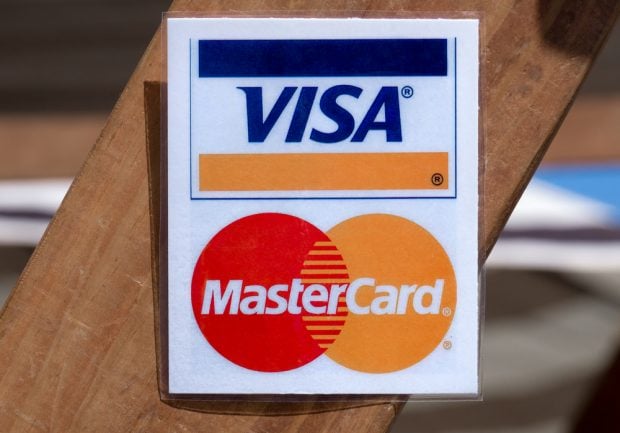A wave of overdraft lawsuits has struck credit unions across thecountry, and many more could be on the way, according to lawyersfamiliar with the matter.
|Since September, at least one dozen credit unions in nine stateshave been hit with class-action suits over their overdraft practices, according tocourt documents. Often, the dispute is over how credit unionsdisclose the methods under which they apply overdraft fees.
|In a case against the Lakeland, Fla.-based MidFlorida CreditUnion, for example, which has $2.3 billion in assets and 220,000members, plaintiff Tracy Fry alleged in a Nov. 24 complaint thatthe credit union charged overdraft fees based on members' availablebalances rather than their actual balances. Fry claimed thepractice breached MidFlorida's opt-in agreement and wasinconsistent with its disclosure materials. MidFlorida did notrespond to CU Times' requests for comment.
Should CUs be concerned about theoverdraft lawsuits?Many more credit unions are likely to get hit with similar suitssoon, according to Michael Bell, an attorney at Howard & Howardin Royal Oak, Mich.
|“This I absolutely believe is the tip of the iceberg; I expectit to run its course in the next year or two, and I expect it toenvelop 100 more credit unions,” he told CU Times.
|Bell's firm represents the Parchment, Mich.-based Advia CreditUnion and the St. Joseph, Mich.-based United Federal Credit Union –both of which are also being sued by people with claims similar toFry's. Advia, which has $1.1 billion in assets and 119,000 members,was sued on Nov. 19; the complaint against $2 billion United, whichhas 141,000 members, was filed on Sept. 21.
|A review of the 12 suits brought before federal courts sinceSeptember shows that the same two firms – the Redlands,Calif.-based McCune Wright and the Santa Monica, Calif.-based TheKick Law Firm – represent all the plaintiffs. Law firms in theplaintiffs' home states are also involved, according to thecomplaints. McCune Wright and Kick Law Firm did not respond torequests for comment.
|The 12 are just the latest in a stream of overdraft suitsagainst credit unions that began in June of 2013, according toStuart Richter, a Los Angeles-based partner at Katten MuchinRosenman, which represents several of the defendants.
|Those cases largely began in state court, he said. Then in 2015,plaintiffs started filing claims alleging credit unions' overdraftpractices violated Regulation E.
|“We started removing those cases to federal court,” he said.“That's when they started filing them across the country.”
|Richter also said that about four years ago, a series ofoverdraft suits alleged credit unions were resequencing withdrawalsto maximize overdraft fees.
|“Those lawyers found out pretty quickly that credit unions don'tresequence transactions,” he noted. “Shortly after those cases wereall dismissed, you started to see McCune Wright file these cases ona different theory. The theory they're alleging now is that becausethe credit union charges based on the available balance, thatthat's misleading to the member.”
|Bell said he doesn't know if there's a method behind the timingor nature of credit unions involved in the 12 class-action suits,but he did note a correlation with regulators.
|“If you watch the CFPB and what they do, they highlight an issueand if you watch, shortly thereafter all the big banks get sued onthat issue,” he said. “Shortly thereafter, all the credit unionsget sued on that issue. They bring up a point: 'Boy, this doesn'tseem fair. We don't like this.' Then you just watch, and it justworks its way through the chain.”
|Bell added, “I think what makes you a target on a very basiclevel is, number one, you're a credit union. Number two, you haveoverdraft products.”
|The bigger the asset size, the bigger the member base and thebigger the risk, he added.
|Richter also sees credit unions' vulnerability.
|“I would say that just about every credit union that I'verepresented, and there's probably 20 of them so far in these cases,they process the debit card transactions the way that McCunealleges they do,” he said. “I'm not saying that's wrong. I thinkthere's nothing wrong with it, but that's the allegation.”
|So what should credit unions do?
|“One thing you should absolutely do is take a look at youroverdraft program and disclosures and make sure you've got itcorrect. You absolutely should do that; there's no question,” Bellsaid.
|Richter added, “What they don't allege in these cases is thatthe credit unions are doing anything improper. What they allegebasically is that the disclosures are misleading, that people think that they're getting charged overdraft fees basedon the amount of money in their account and that should be theactual balance as opposed to the available balance.”
|Credit unions should also respond quickly and aggressively ifthey're hit with a suit, the attorneys said.
|“The quicker and more promptly you move, really the more moneyand time you can save,” Bell said. “Things don't get better withtime, they get worse.”
|But be prepared to spend $10,000 on a defense – and maybe muchmore, he said.
|“Does it rise to the level of $100,000? Well, that depends,” hesaid. “Obviously, if you go to trial, it certainly does. If thereare 700 plaintiffs in the class, you're talking hundreds ofthousands of bucks. It's not cheap.”
|On Nov. 30, McCune Wright, Kick Law Firm and Brandt Law filed arequest to have 11 cases consolidated and heard in an IllinoisDistrict Court. In the meantime, more suits are rolling in. Anotherclaim has already been filed in Georgia, Richter said.
|Bell said his firm has sent warnings to more than 100 clients,alerting them they could be next.
Complete your profile to continue reading and get FREE access to CUTimes.com, part of your ALM digital membership.
Your access to unlimited CUTimes.com content isn’t changing.
Once you are an ALM digital member, you’ll receive:
- Critical CUTimes.com information including comprehensive product and service provider listings via the Marketplace Directory, CU Careers, resources from industry leaders, webcasts, and breaking news, analysis and more with our informative Newsletters.
- Exclusive discounts on ALM and CU Times events.
- Access to other award-winning ALM websites including Law.com and GlobeSt.com.
Already have an account? Sign In
© 2024 ALM Global, LLC, All Rights Reserved. Request academic re-use from www.copyright.com. All other uses, submit a request to [email protected]. For more information visit Asset & Logo Licensing.









